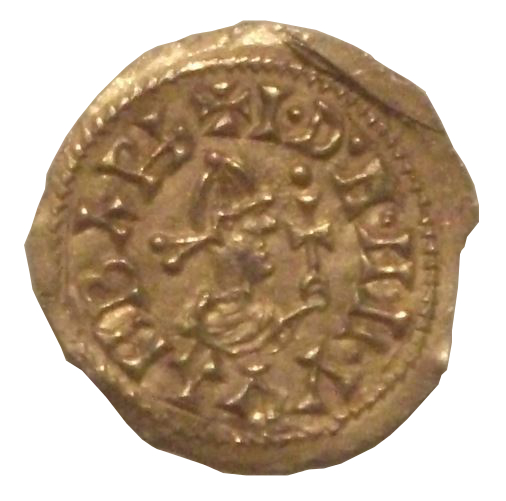|
Third Council Of Braga
The Third Council of Braga was held in 675, during the primacy of Leodegisius, and in the reign of King Wamba Wamba (Medieval Latin: ''VVamba, Vamba, Wamba''; 643 – 687/688) was the king of the Visigoths from 672 to 680. During his reign, the Visigothic kingdom encompassed all of Hispania and part of southern Gaul known as Septimania. According to He .... It was attended by eight bishops. Eight decrees were promulgated at this council; (1) that no one should dare to offer in sacrifice milk and grapes, but bread and wine mixed with a drop of water in a chalice, nor should bread soaking in wine be used; (2) that laymen should be excommunicated, and ecclesiastics deprived of their office, if either put the sacred vessels to profane uses; (4) that no priest should have any woman but his mother in his house; (5-6) that bishops, when carrying the relics of martyrs in procession, must walk to the church, and not be carried in a chair, or litter, by deacons clothed in white; that co ... [...More Info...] [...Related Items...] OR: [Wikipedia] [Google] [Baidu] |
King Wamba
Wamba (Medieval Latin: ''VVamba, Vamba, Wamba''; 643 – 687/688) was the king of the Visigoths from 672 to 680. During his reign, the Visigothic kingdom encompassed all of Hispania and part of southern Gaul known as Septimania. According to Herwig Wolfram, ''Wamba'' means "big paunch" in Gothic (like German: "Wampe", cognate to English "womb") and may have been a nickname. Both Julian of Toledo in his ''Historia Wambae'' (''History of Wamba'') and the decisions of the eleventh Council of Toledo, held under Wamba's auspices, only refer to the king as Wamba. History Military events After ascending the throne on 1 September 672, Wamba faced a revolt from Hilderic, governor of Nîmes, who had himself aspired to the kingship. Hilderic was supported by Gunhild, Bishop of Maguelonne. Wamba sent the dux (general) Paul to put down the rebels, but upon his arrival at Narbonne, he induced his officers to renounce their loyalty to Wamba and elect him king as Flavius Paulus. He was joined ... [...More Info...] [...Related Items...] OR: [Wikipedia] [Google] [Baidu] |
Councils Of Braga
Several church councils were held in Braga in the Middle Ages. Braga was the metropolitan of an ecclesiastical province and it was the chief bishopric of the Kingdom of Galicia The Kingdom of Galicia ( gl, Reino de Galicia, or ''Galiza''; es, Reino de Galicia; pt, Reino da Galiza; la, Galliciense Regnum) was a political entity located in southwestern Europe, which at its territorial zenith occupied the entire north ... during the Suevic period and in the High Middle Ages. * Council of Braga (411), probably an invention of Father Bernardo Brito * Council of Braga (561) * Council of Braga (572) * Council of Braga (675) * Council of Braga (1278–1280) * Council of Braga (1301) * Council of Braga (1328) * Council of Braga (1436) * Council of Braga (1488) * Council of Braga (1537) {{DEFAULTSORT:Councils Of Braga ... [...More Info...] [...Related Items...] OR: [Wikipedia] [Google] [Baidu] |
Biblioteca Vaticana
The Vatican Apostolic Library ( la, Bibliotheca Apostolica Vaticana, it, Biblioteca Apostolica Vaticana), more commonly known as the Vatican Library or informally as the Vat, is the library of the Holy See, located in Vatican City. Formally established in 1475, although it is much older—it is one of the oldest libraries in the world and contains one of the most significant collections of historical texts. It has 75,000 codices from throughout history, as well as 1.1 million printed books, which include some 8,500 incunabula. The Vatican Library is a research library for history, law, philosophy, science, and theology. The Vatican Library is open to anyone who can document their qualifications and research needs. Photocopies for private study of pages from books published between 1801 and 1990 can be requested in person or by mail. Pope Nicholas V (1447–1455) envisioned a new Rome with extensive public works to lure pilgrims and scholars to the city to begin its transf ... [...More Info...] [...Related Items...] OR: [Wikipedia] [Google] [Baidu] |
7th-century Church Councils
The 7th century is the period from 601 ( DCI) through 700 ( DCC) in accordance with the Julian calendar in the Common Era. The spread of Islam and the Muslim conquests began with the unification of Arabia by Muhammad starting in 622. After Muhammad's death in 632, Islam expanded beyond the Arabian Peninsula under the Rashidun Caliphate (632–661) and the Umayyad Caliphate (661–750). The Muslim conquest of Persia in the 7th century led to the downfall of the Sasanian Empire. Also conquered during the 7th century were Syria, Palestine, Armenia, Egypt, and North Africa. The Byzantine Empire suffered setbacks during the rapid expansion of the Caliphate, a mass incursion of Slavs in the Balkans which reduced its territorial limits. The decisive victory at the Siege of Constantinople in the 670s led the empire to retain Asia Minor which assured the existence of the empire. In the Iberian Peninsula, the 7th century was known as the ''Siglo de Concilios'' (century of councils) refe ... [...More Info...] [...Related Items...] OR: [Wikipedia] [Google] [Baidu] |

